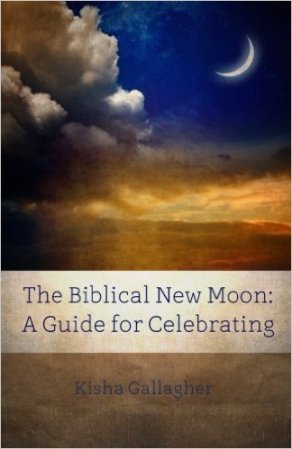Lev. 12-end of 15
Tradition
Tazria, (she conceives) and m’tzora (a leper) are this week’s double Torah portion. This study will focus on the latter. To avoid some confusion, I first want to explain a couple of Hebrew terms. Leprosy as the disease we know today is not what is being referred to in the Bible according to every authority I have checked. Instead, it is referring to skin infections that would result in welts. Translator’s have often followed the King James Bible interpretation and used the English word leprosy. Do keep in mind that this is a misnomer. The Hebrew word m’tzora is simply the word tza’ra’at with a mem prefix. The prefix changes the root verb form, tza’ra, to a noun meaning: one with skin infection.
M’tzora or one with a tza’ra’at (skin disease) is often regulated by the Sages and modern Jewish authorities to an affliction caused by the spread of malicious gossip or slander. This particular type of gossip differs from lashon hara or the evil tongue. Instead, m’tzora comes about when one spreads lies and untruths in order to defame or hurt another person. Lashon hara is general gossip; its focus is on the use of true speech for a wrongful purpose, rather than a falsehood resulting in harm.
M’tzora is traditionally associated with malicious gossip for the following reasons. “Motzi shem ra” is a Hebrew phrase that means spreading or putting out a bad name. Some shorten the phrase to “motzi ra” which is closer linguistically to m’tzora and means one that spreads or puts forth evil. Since these phrases share linguistic similarities with m’tzora, the Sages have considered leprosy (skin disease) a punishment for the sins of slander and malicious gossip. They teach that gossip is like leprosy because it is highly contagious. Rabbi Israel Salanter taught that the laws of leprosy and gossip follow the portion containing the dietary laws to teach us to be as scrupulous about what comes out of our mouths as we are about what goes into them.
The Sages designate a total of seven types of antisocial behavior that God punishes with tza’ra’at. They are listed in Proverbs 6:16-19. (For those of you familiar with the Creation Gospel workbook 2 by Dr. Alewine, this will be particularly interesting.)
(16) These six things doth the LORD hate: yea, seven are an abomination unto him:
(17) A proud look, a lying tongue, and hands that shed innocent blood,
(18) An heart that deviseth wicked imaginations, feet that be swift in running to mischief,
(19) A false witness that speaketh lies, and he that soweth discord among brethren.
All these attributes are hard to punish in a court of law, therefore YHWH is said to inflict tza’ra’at on those that practice such behavior. Examples are Miriam being struck with leprosy after speaking against Moses (Num. 12:10). Moses is afflicted with leprosy for speaking ill of the Israelites (Ex. 4:1, 6) Korah and his cohorts and all their goods while not afflicted with a skin disease were swallowed up by the earth after speaking against Moses and the priesthood. (Num. 16) Along with Korah there arose a plague on the people that continued to speak out against Moses; 14,700 Israelites lost their lives. King Uzziah followed the ways of Korah when He became prideful and entered the house of YHWH to offer incense though he wasn’t of the priestly order. He broke out in leprosy (skin disease) and remained in that state unto death. (2 Chron. 16, 19)
Many rabbis believe that these skin conditions, garments, or homes with mold were not of any of the typical diseases or fungi of today. Rather, these were regulated to the period when there was a standing and functioning temple. They believed these plagues, negaim, were to bring the afflicted to repentance and ritual purity, without which one couldn’t enter into the divine presence.
While some may dispute the rabbis deduction that m’tzora is likened to evil speech, there are some other convincing tidbits that tilts the scales in their favor. If the natural is supposed to teach about the spiritual, then it cannot be a coincidence that one afflicted with tza’ra’at had to cover his or her MOUTH.
Lev 13:45-46 “The leprous person who has the disease shall wear torn clothes and let the hair of his head hang loose, and he shall cover his upper lip and cry out, ‘Unclean, unclean.’ (46) He shall remain unclean as long as he has the disease. He is unclean. He shall live alone. His dwelling shall be outside the camp.
The m’tzora had to cover his/her MOUTH and cry out “tamei, tamei”, that is translated as ritually unclean. Furthermore, this person had to live ALONE and OUTSIDE the camp. Why cover the mouth? Could this allude to the unclean things that have come forth out of his/her mouth in the form of malicious gossip or slander? Having to live alone outside of the community of Israel could “spiritually” be likened to those Paul referred to as not inheriting the Kingdom. Any cleansed leper had to be washed and sanctified just as we are.
1Co 6:9-11 Know ye not that the unrighteous shall not inherit the kingdom of God? Be not deceived: neither fornicators, nor idolaters, nor adulterers, nor effeminate, nor abusers of themselves with mankind, (10) Nor thieves, nor covetous, nor drunkards, nor revilers, nor extortioners, shall inherit the kingdom of God. (11) And such were some of you: but ye are washed, but ye are sanctified, but ye are justified in the name of the Adonai Yeshua, and by the Spirit of our God.
Practical Application
The real question for Messianic believers is how we can or should apply these lessons in tazria and m’tzora to our walk with the Messiah. The Brit Chadashah teaches us that we are now the temple and where the Holy One, blessed be He, resides. (1 Cor. 3:16-17; 6:19; 2 Cor. 6:16; Eph. 2:21) If this is the case, how does YHWH dwell in us when we are in a state of ritual impurity? Or how does He remain in us when we sin or fall short?
Yeshua healed the woman with the issue of blood and He cleansed her. (Mat. 9, Mark 5, and Luke 8) Her impurity wasn’t transferred unto Him as would have been the case if He were a mere man according to Torah. Yeshua also cleansed lepers. (Mat. 8, Mark 1, Luke 17) It was prophesied that the Messiah would cleanse the lepers. Leprosy in Hebrew is often categorized as a plague or negaim. (Is. 35:5,6; 61:1; Mat 10:8, 11:5; Luke 7:22)
But, according to Torah how is it that this transfer or cleansing takes place? These are hard questions. I cannot help but to think back to the prophesy in Jeremiah where YHWH promises to “cleanse” His people.
Jer 33:7-8 And I will cause the captivity of Judah and the captivity of Israel to return, and will build them, as at the first. (8) And I will cleanse (tahor—make ritually clean) them from all their iniquity (avon— punishment), whereby they have sinned against me; and I will pardon all their iniquities, whereby they have sinned, and whereby they have transgressed against me.
If the natural is a picture of the spiritual, then Yeshua certainly has the authority and power as our high priest to cleanse us of ritual impurity. After all, flesh and blood does not inherit the Kingdom. We need not worry about our fleshly ritual state to enter in the kingdom. Corruption must first take on incorruption. In other words, these flesh and blood bodies that can become ritually unclean, must be shed before we enter the fullness of the Kingdom of G-d.
1Co 15:50 Now this I say, brethren, that flesh and blood cannot inherit the kingdom of God; neither doth corruption inherit incorruption.
However, I would be remiss to simply ignore the practical applications we can apply in this double portion. Although, I do have a caveat: we must be careful to stay balanced when it comes to laying down particular halachah (“our walk” or doctrine for living) in these areas, given their propensity to ambiguity. Mercy must be exercised in great measure to our fellow brethren as mercy is NOT an ambiguous mitzvah and is a much greater commandment.
We can follow most of the biblical restrictions after childbirth, during menstruation, and for sexual relations. Obviously, we cannot offer sacrifices, but we can abstain from marital relations for the prescribed amount of time. We can also immerse in a mikvah to symbolize our cleansed state after childbirth, menstruation, sexual relations, or other natural emissions. But, that is where basic application ends for these Torah portions. First, we do not have an earthly functioning temple or priesthood. We cannot offer the required sacrifices. We cannot stand in the place of the priest and “judge” skin conditions; especially given the fact that today’s afflictions may have no semblance to those mentioned. To put it succinctly, we cannot make halachahic rule for our communities on issues we can’t possibly properly judge. This is an area where we must place our trust in faith in the cleansing work of Messiah, Yeshua.
Sometimes I think Messianic believers in their zeal for the Torah forget (unintentionally) about the LIVING Torah. Yeshua’s priesthood differs from the Levitical priesthood. I believe the book of Hebrews tries to explain this to believers living without a temple. What has changed under the Renewed Covenant is the priesthood. Therefore, many of the rituals and sacrifices now have to be understood to be functioning in the heavenly tabernacle on our behalf. (Heb. 8) Our High Priest forever lives and makes intercession for us. (Heb. 7:25)
The Levitical Priesthood is a natural picture of the spiritual heavenly priesthood. As we study the Levitical Priesthood in the Torah, we should be ever mindful of the greater priesthood that IS currently functioning and operating on our behalf today.
Heb 9:13-14 For if the blood of bulls and of goats, and the ashes of an heifer sprinkling the unclean, sanctifieth to the purifying of the flesh: (14) How much more shall the blood of Christ, who through the eternal Spirit offered himself without spot to God, purge your conscience from dead works to serve the living God?
The above verse should shore up any misunderstandings we have about the practical application of this week’s parashah. It is the BLOOD of Messiah that cleanses us. We need not seek out an earthly priesthood or temple to accomplish what our heavenly Priest has already done for us. However, this doesn’t negate the fact that the Levitical Priesthood was made as an everlasting Covenant of Salt. (Num.18:19)
Perhaps Yeshua has placed us in a state of perpetual ritual purity until He finally redeems also these flesh and blood bodies. I’m not sure; there are many variables to consider. But I do know that His blood has washed the repentant believer of sin(s). (Rev. 1:5) Living waters (mayim chayim) were required in the ritual of cleansing the lepers/skin diseases. (Lev. 14:6) We know living waters comes forth from Messiah. (John 4:10,11) And this same living water is said to flow from us if we have His Spirit. (John 7:38)
Spiritual Application
What we can do is search out the spiritual application of these portions. It seems to me that the rabbis may have some wisdom yet again in this area. Perhaps we should be focusing on what comes out of our mouths and how that affects our physical bodies and life situations. Our particular circumstances may be a direct result of our big, fat mouths.
Mar 7:14-16 And when he had called all the people unto him, he said unto them, Hearken unto me every one of you, and understand: (15) There is nothing from without a man, that entering into him can defile him: but the things which come out of him, those are they that defile the man. (16) If any man have ears to hear, let him hear.
Mar 7:20-23 And he said, That which cometh out of the man, that defileth the man. (21) For from within, out of the heart of men, proceed evil thoughts, adulteries, fornications, murders, (22) Thefts, covetousness, wickedness, deceit, lasciviousness, an evil eye, blasphemy, pride, foolishness: (23) All these evil things come from within, and defile the man.
Messiah, to those that have an ear to hear, explains what it is that defiles us: the words that come out of our mouths. May we be a people with clean lips that need not cover our mouths shouting, “UNCLEAN, UNCLEAN”!
Perhaps, the primary lesson to be learned here is so simple that we miss it. If tza’ra’at or worse breaks out on a person that speaks against Moses or the Levitical Priesthood, how much more so on those that speak against Messiah and the Melchisedec Priesthood? Selah.




